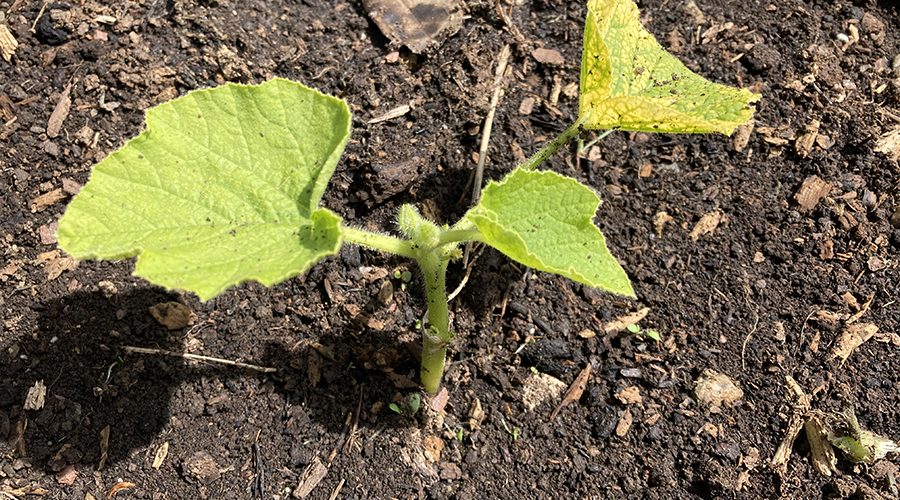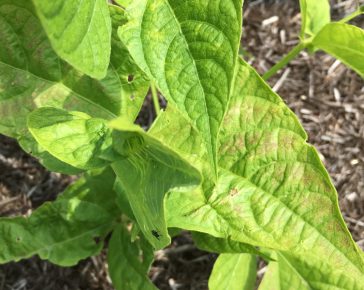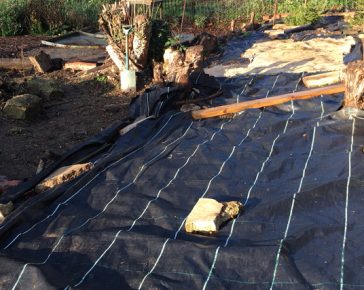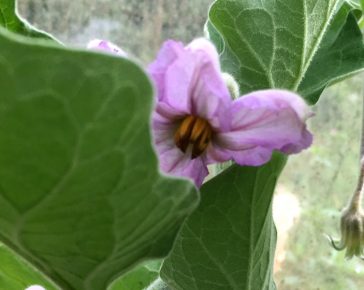I wrote last week about my slow growing vegetable plants. I had been wondering whether this was due to a) cool, grey days, b) poor soil or c) lack of water. I’m happy this week to report that after a couple of thorough waterings last week, and warmer, brighter weather this week, most plants in most of the raised beds have perked right up.
However, there is one raised bed that is not doing very well at all: the squash patch.
Now, this is of great interest to me, because I topped that bed up with a very generous layer of wood chip compost before planting. I’d had the woodchips in a big pile, composting away for a year, possibly eighteen months, and although fairly coarse, the compost was nice and crumbly and looked good when I added it.
I’ve been reading a bit since seeing the difference between the plants growing in this bed and the plants growing in other beds – for example, in another bed I have courgette plants growing in a bed that I topped with multipurpose compost. These plants, although the same size when I received the plugs and closely related to squash, are much greener and easily twice as big. The squash plants on the other hand are very pale, stunted and generally looking a little sorry for themselves. Here’s my conclusion: woodchip compost is often deficient in nutrients, particularly magnesium and nitrogen.
I didn’t know this before, but apparently its something to do with the way the woodchips break down.
I think this must be what the problem is, and it is probably exacerbated by the fact that the soil underneath is quite rock solid. I may have to break my no-dig rule and dig it over this autumn to try and get things working again. For now though, I’m going to try three things:
- Using a liquid feed to increase nutrients – I did this yesterday, so should be able to see an improvement soon if it has helped.
- Digging up the plants, adding loads of multipurpose compost to the holes and then replanting – this will be my next port of call if the liquid feed doesn’t work.
- Making a nettle feed that is high in nitrogen – this is my final step but I’m hoping I won’t need to do this.
We’ll see how it goes – fingers crossed for a good recovery. I will report back in a couple of weeks in case others are having similar problems following the use of decomposed woodchip. I think next time, I will mix the woodchip compost with multipurpose compost. That would probably have worked better.




